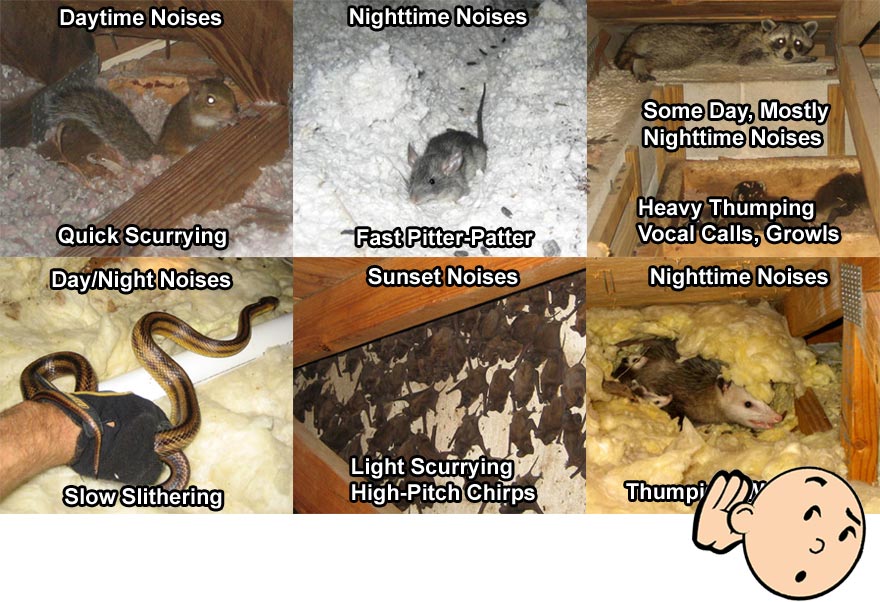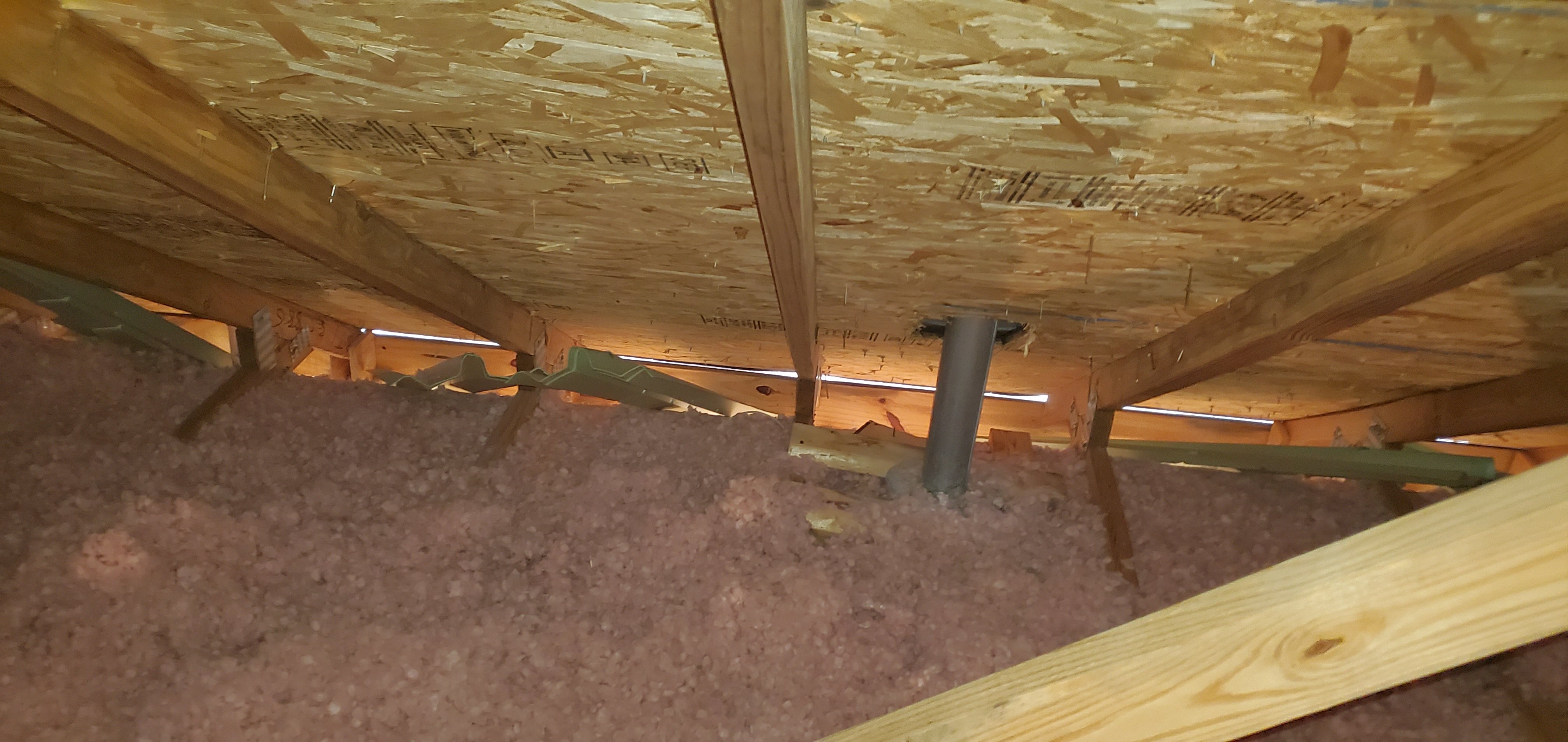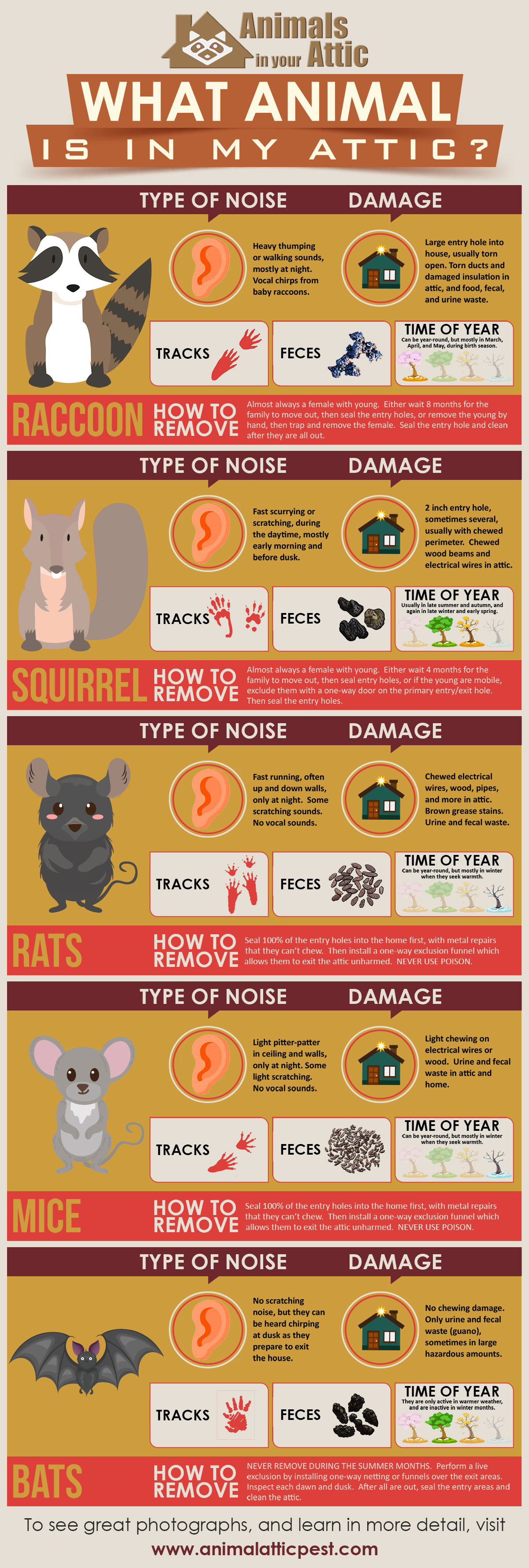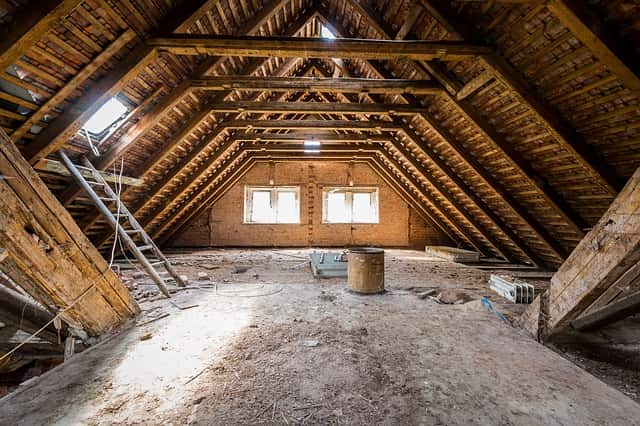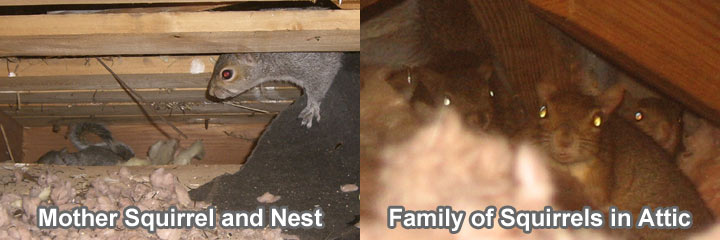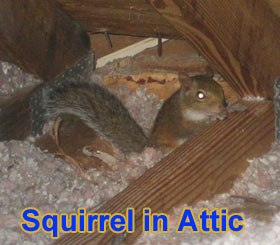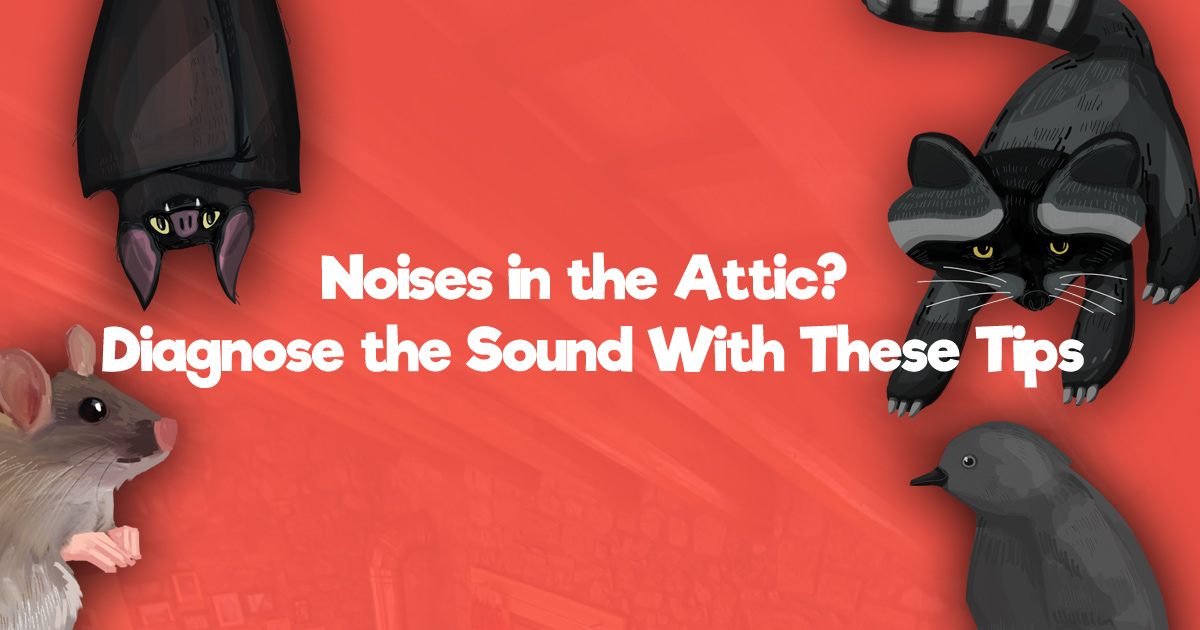Crawling Noise In Attic

Snarling noise in the attic.
Crawling noise in attic. A loose attic vent or shutter on a window can make a banging noise in the wind. Signs raccoons are in your home. They enjoy crawl spaces ceilings walls or ducts. Immediately shut off the system then wait a few moments and turn it back on.
You re most likely dealing with a nocturnal animal since you hear noises at night so it may not be squirrel. When you hear a banging coming from the attic and are trying to determine the cause you are most likely dealing with one of these four animals. The most common time of year to hear raccoon noises in the attic is in the spring. Because their teeth never stop growing they are constantly filling them down by chewing on any and everything available.
This is a classic squirrel in the attic noise. It can ofter sound as if the roof is broken in some way or the roof is going to collapse. Most animals scratch in the attic to clear out space for nesting or maybe to bury food. Thus bats crawl under attic insulation and they remain in a largely inactive state over winter but if the temperature rises they wake up and may crawl around under the insulation making scratching noises with their claws.
Raccoons rats mice and squirrels all scratch. Another common sound associated with squirrels being present in your attic walls or ceiling is chewing sounds. Grinding noises are made as rodents chew woodwork. If your house is giving you the creeps because of popping noises from inside the walls and up in the attic you can probably chalk it up to something other than spirits from beyond the grave.
However resourceful raccoons can make a den pretty much anywhere in your house. The creaking sound is perfectly normal and is caused by the movement of roof timbers responding to changes in temperature. Likely culprits are rats mice grey squirrels and flying squirrels. At night attic can sometime make loud creaking and cracking sounds.
Depending on the pest involved these noises may stay primarily in one place or they may wander around. This is a common noise made by a litter of juvenile raccoons as they develop. Squealing typically a sign of baby raccoons. Air passing through ducts and radiators can sometimes create a loud noise as can water passing through pipes.
Heavy pounding noises in the attic or ceiling. High pitched squeals or a grinding noise from a furnace or an air conditioner could mean that a moving part is not moving the way it should and requires quick action. There are many distinct noises which you can hear emanating from your attic or crawl space. Popping is a common way to describe a variety of noises that a house makes and the causes are varied.
